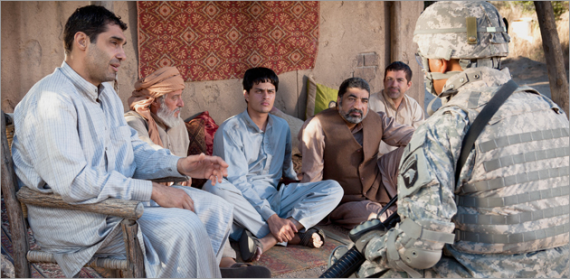

It's expensive, but quality doesn't come cheap. At least then it would get native speakers, who would have a fluency I probably can't match. Spanish and French linguists ought to be assigned to, say, Latin America or NATO units, where they'd be useful.īut, hey: If the Army would rather spend hundreds of thousands on contractors to do the job it trained me for, maybe it should just contract out all its language positions. Our skills are specific: There's no reason Korean speakers should be in al-Kut and not Korea. Many end up failing their yearly re-certification exams.Īt the least, the Army needs to stop treating linguists like we're interchangeable. Honing language skills falls far down the priority list. Meanwhile, linguists who actually go to war zones spend their time at home in a routine of garrison duties and unrelated training, no different from the rest of Big Army. Some defense companies are even working on techie ways to remotely connect linguists far from the front lines with combat troops who need quick translation help. Their missions continue every day, allowing them to maintain language proficiency. Unlike their counterparts overseas, these soldiers routinely work with their adoptive languages while still directly supporting deployed units from afar, like writing reports on collected communications and feeding databases. Those of us who don't go to war zones mostly work at intelligence centers like Maryland's Fort Meade, home of the National Security Agency. If that's the way the Army wants it, maybe linguists like me shouldn't actually deploy at all.

Often, we waited for something to go wrong with our expensive communications-collections gear, and called the guy whose job it was to maintain the equipment if a glitch required more than flipping a reset switch. Whether assigned to military intelligence units or attached to infantry brigades, linguists found themselves in any capacity but their own. Problems like that were common to all deploying units that my fellow linguists and I knew of. But what did he spend his tour doing? Busywork, mostly, interrupted by watching his buddies play World of Warcraft. If he had been translating insurgent communications, it might have come in handy for his team, given the extent of Iranian infiltration into Iraq. In one case, a soldier stationed in Amarah, near the Iranian border, spoke excellent Farsi. I got through 35 books in an eight-month tour, including Tom Ricks' Fiasco. At many others, the daily routine was one of whiling away a shift with correspondence courses or a good paperback. At some sites, linguists functioned as analysts to make up for shortages or operated secret intel equipment that required high-level clearances.

The situation was similar across our unit, the 504th Battlefield Surveillance Brigade. Meanwhile, the military linguists on my team simply sat to one side, numbly monitoring equipment and our computer screens for uneventful hours on end. Rumor was he made more than $200,000 - easily five times my paycheck. A native of Mosul, he was one of two contractors who would complete every language-related task required for the rest of our deployment. When I arrived for my first shift in-country, I quickly saw who would be turning those purloined insurgent communications into English: a large, middle-aged Arab dude, not me.


 0 kommentar(er)
0 kommentar(er)
